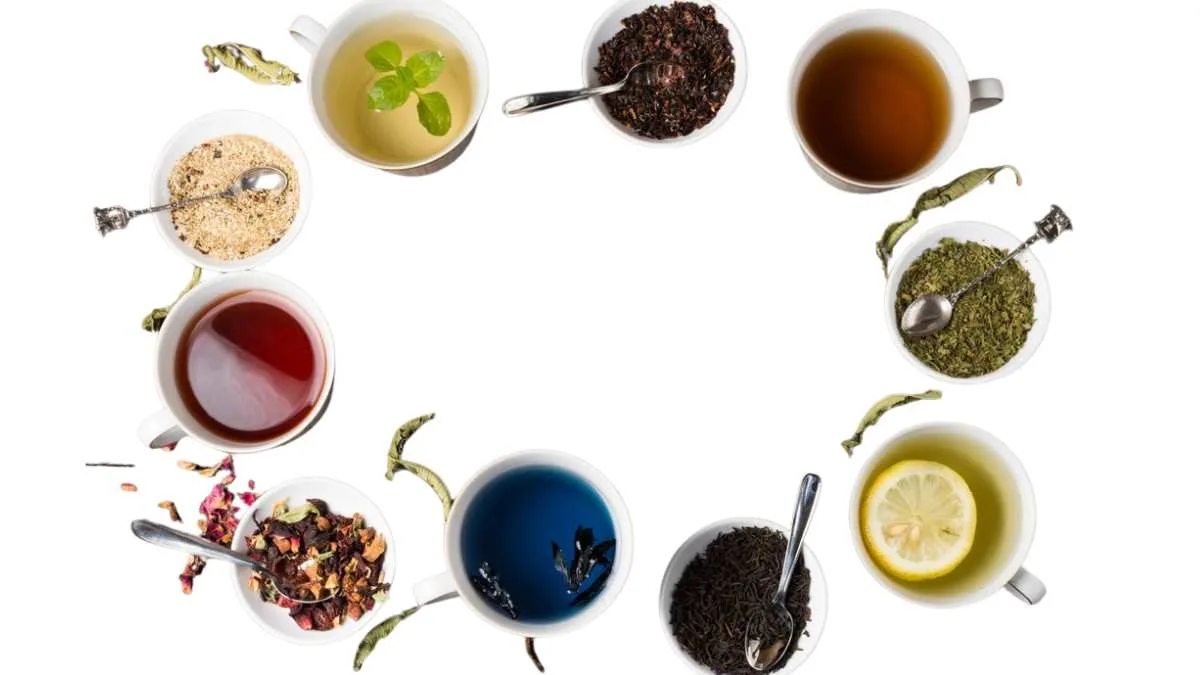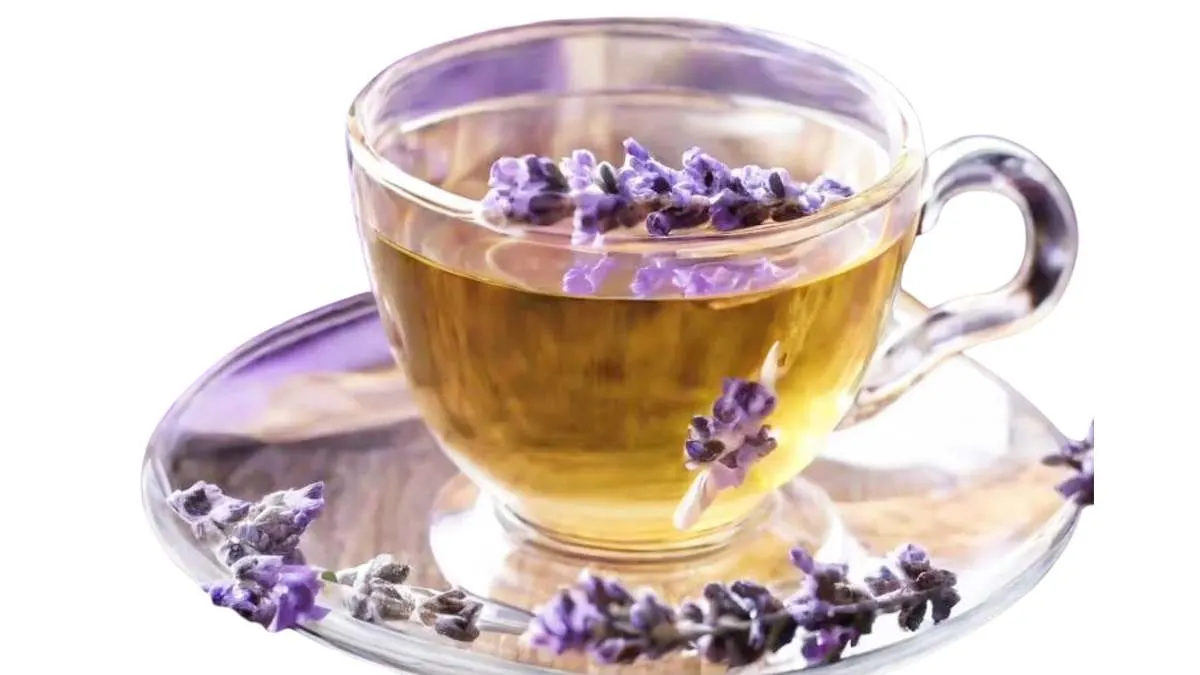In a world where health-conscious choices are becoming more popular, herbal tea has gained significant attention for its numerous benefits and soothing qualities. Unlike traditional teas, which are made from the leaves of the Camellia sinensis plant, herbal tea is brewed from a wide variety of herbs, flowers, fruits, seeds, and spices.
These infusions offer unique flavors, potential therapeutic benefits, and a refreshing alternative to caffeine-filled drinks.
If you’re looking to explore the world of herbal teas, this comprehensive guide will help you understand what herbal tea is, the different types available, their health benefits, and tips on how to brew the perfect cup. Let’s dive into the world of herbal tea and its many benefits!

What is Herbal Tea?
Herbal tea is not technically “tea” in the traditional sense since it doesn’t come from the Camellia sinensis plant, the source of black, green, oolong, and white teas. Instead, herbal tea is made by infusing dried herbs, flowers, fruits, roots, or spices in hot water. This allows the natural flavors and active compounds of the ingredients to be released into the water.
Some popular herbal teas include chamomile, peppermint, ginger, hibiscus, and rooibos. These herbal blends are typically caffeine-free, making them an excellent choice for those looking to reduce their caffeine intake or those who enjoy a calming beverage before bedtime.
Health Benefits of Herbal Tea:
One of the primary reasons people turn to herbal tea is for its potential health benefits. Here are some of the key advantages of incorporating herbal tea into your daily routine:
-
Promotes Relaxation and Reduces Stress: Many herbal teas, such as chamomile and lavender, are known for their calming properties. Chamomile tea, in particular, has been studied for its ability to reduce stress, anxiety, and promote better sleep. Drinking a cup of chamomile tea before bed can help calm the mind and prepare you for a restful night’s sleep.
-
Aids Digestion: Herbal teas like peppermint and ginger are well-known for their digestive properties. Peppermint tea helps relieve bloating, indigestion, and nausea, while ginger tea can soothe an upset stomach and improve digestion. These teas are perfect for soothing digestive discomfort after meals.
-
Supports Immune Health: Herbal teas such as echinacea, elderberry, and hibiscus are believed to support the immune system. Hibiscus tea, rich in vitamin C, can help boost the immune system and prevent colds, while echinacea is often used to reduce the duration and severity of cold symptoms.
-
Improves Skin Health: Many herbal teas are packed with antioxidants that promote healthy skin. For example, rooibos tea is rich in antioxidants, which can help combat the signs of aging and improve overall skin texture. Additionally, chamomile and peppermint are often used in skincare products for their soothing and anti-inflammatory properties.
-
Supports Weight Loss: Some herbal teas, like green rooibos and dandelion root, are believed to aid in weight loss. They can support the body’s natural detoxification processes and may help reduce bloating, improve metabolism, and curb appetite.
-
Improves Hydration: Herbal teas are a great way to stay hydrated without the added sugars and artificial ingredients found in many commercial beverages. Since they are typically caffeine-free, they can be consumed throughout the day without worrying about dehydration or the disruptive effects of caffeine.
-
Detoxification and Cleansing: Certain herbal teas, such as detox blends made with ingredients like dandelion root, ginger, and turmeric, are thought to help cleanse the body and support liver function. These teas are often used in detox programs to eliminate toxins and improve overall health.
Popular Herbal Teas and Their Benefits:
There are countless herbal teas available, each with its own unique flavor profile and health benefits. Here are some of the most popular herbal teas and what they can do for your well-being:
-
Chamomile Tea: Known for its calming properties, chamomile tea is often used to reduce anxiety and promote sleep. It’s an excellent choice for a relaxing evening drink.
-
Peppermint Tea: This refreshing herbal tea is well-known for its digestive benefits. It helps relieve nausea, bloating, and indigestion, making it a great choice after meals.
-
Ginger Tea: Ginger is a powerful root with anti-inflammatory and digestive benefits. Ginger tea can soothe an upset stomach, reduce nausea, and promote healthy digestion.
-
Hibiscus Tea: Made from the flowers of the hibiscus plant, hibiscus tea has a tangy, tart flavor and is rich in antioxidants and vitamin C. It’s also known for its ability to lower blood pressure and improve heart health.
-
Rooibos Tea: A naturally caffeine-free tea from South Africa, rooibos is rich in antioxidants and has a mild, slightly sweet flavor. It is known for its anti-inflammatory properties and its ability to support skin health.
-
Lemon Balm Tea: Known for its mild lemon scent, lemon balm tea is a great herbal remedy for stress, anxiety, and insomnia. It also supports digestive health and can alleviate nausea and indigestion.
-
Lavender Tea: Lavender is widely known for its soothing properties, making it ideal for reducing stress, anxiety, and promoting restful sleep. Lavender tea also has mild pain-relieving qualities.
-
Dandelion Root Tea: Dandelion root tea is commonly used for its detoxifying properties. It can support liver function and aid in digestion, making it a good choice for cleansing.
Read Next: Pumpkin Tea | Ingredients, and How to Make It
How to Brew the Perfect Cup of Herbal Tea:
To make the most out of your herbal tea experience, proper brewing is essential. Here’s a guide on how to brew the perfect cup of herbal tea:
-
Use Fresh, Filtered Water: Fresh, clean water is essential for making good tea. Filtered water will ensure that the water doesn’t have any unpleasant taste that could interfere with the flavors of your herbal tea.
-
Choose the Right Temperature: Unlike traditional teas, which have specific temperature ranges for brewing, herbal teas are generally brewed with water at boiling point (212°F or 100°C). However, some delicate herbs like lavender and lemon balm may require slightly cooler water (around 190°F or 88°C) to prevent bitterness.
-
Use the Right Tea-to-Water Ratio: For loose-leaf herbal tea, use about one to two teaspoons of dried herbs per 8-ounce cup of water. If you’re using tea bags, follow the instructions on the packaging for the best results.
-
Steep for the Right Time: Most herbal teas should be steeped for 5 to 10 minutes. The longer the steeping time, the more robust the flavor will be. However, be mindful not to over-steep, as this can result in bitterness or a strong, overpowering taste.
-
Add Sweeteners and Extras: If you prefer a sweet tea, consider adding honey, agave syrup, or stevia to enhance the flavor. Fresh lemon, ginger, or mint leaves can also be added for an extra burst of flavor.
-
Store Tea Properly: Keep your herbal teas in a cool, dry place, away from light and moisture, to preserve their flavor and medicinal properties. Store them in airtight containers to maintain their freshness.
Final Tips:
-
Experiment with Blends: If you’re new to herbal tea, try blending different herbs to create your own unique flavors. For example, combine peppermint with chamomile for a relaxing and refreshing tea, or mix ginger with lemon balm for a soothing digestive aid.
-
Use a Tea Infuser or Tea Bags: If you’re brewing loose-leaf herbal tea, using a tea infuser will make it easier to strain the leaves after steeping. If you prefer convenience, tea bags are a great option, but loose-leaf teas generally offer a more robust flavor.
-
Enjoy Tea as Part of Your Daily Routine: Make herbal tea a part of your wellness routine. Whether it’s a cup of peppermint tea after lunch for digestion or chamomile tea before bed to unwind, drinking herbal tea regularly can offer consistent benefits.
-
Consider Caffeine-Free Alternatives: Many herbal teas are naturally caffeine-free, making them an ideal option for those who want to avoid caffeine, especially in the evening. They can also be a great choice for pregnant women, as they are usually safe and soothing.
-
Drink It Warm or Cold: While herbal teas are typically enjoyed hot, many can also be served cold, making them a refreshing option for hot summer days. Simply brew the tea as usual, let it cool, and serve over ice.
FAQs:
Q. What is the best herbal tea for sleep?
Chamomile, lavender, and lemon balm are excellent herbal teas known for their calming properties, making them ideal for improving sleep and reducing anxiety.
Q. Does herbal tea have caffeine?
Most herbal teas are naturally caffeine-free, but it’s always important to check the label if you’re looking for a completely caffeine-free option.
Q. Can herbal tea help with digestion?
Yes! Peppermint, ginger, and dandel

